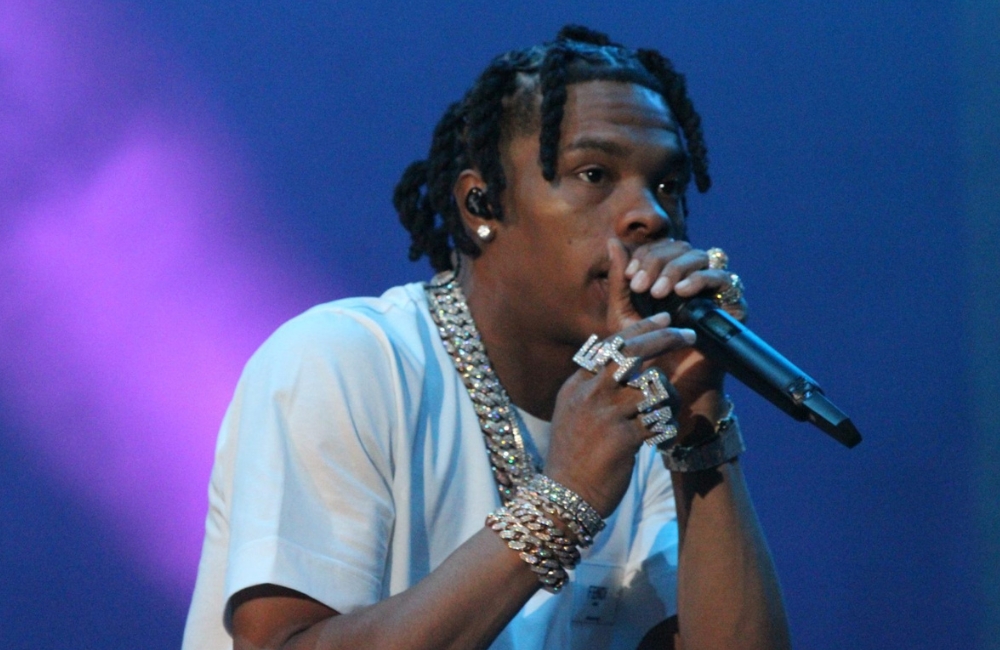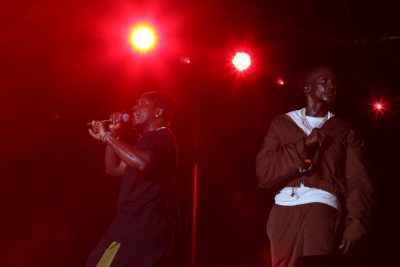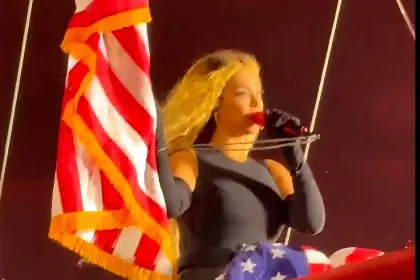Dominique Jones, known professionally as Lil Baby, finds himself at the center of a contentious dispute with Atlanta law enforcement as his attorneys vehemently reject police attempts to connect him to the murders of two teenagers last year. The controversy stems from a violent incident that occurred during the rapper’s video production in May 2024, which police claim contributed to subsequent gang violence.
The confrontation unfolds
In a highly publicized press conference on February 26, 2025, Atlanta Police Department’s Major Ralph Woolfolk announced the apprehension of seven individuals linked to the murders of two teenagers. During this announcement, Woolfolk controversially characterized Lil Baby as a “coward” and insinuated that the rapper’s decision to film in a disputed territory had escalated gang tensions in the area.
According to investigators, the murders resulted from a hit ordered by a rival gang member using a prison telephone. This revelation adds layers of complexity to an already troubling case that has drawn significant media attention and community concern throughout Atlanta.
Legal team responds
Pushing back against these allegations, attorneys Drew Findling and Marissa Goldberg released a statement categorically denying any involvement by their client. The legal representatives described the police department’s claims as “complete and total nonsense” while criticizing the APD’s approach as “unprofessional, unethical and shameful.”
The statement emphasized that Lil Baby had absolutely no connection to the shooting incident and expressed the artist’s profound grief over the loss of young lives. His attorneys highlighted his consistent efforts to empower and elevate his community through his artistic platform and philanthropic initiatives.
Police allegations
Major Woolfolk’s statements during the press conference conveyed deep frustration over youth violence in Atlanta communities. He specifically mentioned one victim, stating, “Lamon Freeman was allowed to be a 13-year-old for 27 minutes before gang violence ultimately took his life.”
The police official directly criticized Lil Baby for allegedly choosing to film in an area controlled by rival gangs, suggesting this decision reflected poor judgment and disregard for potential consequences. Woolfolk’s public address included a direct challenge to the rapper, promising relentless pursuit of accountability for those involved in the violence.
The original incident
While the May 2024 video shoot incident resulted in injuries to three men who sustained wounds to their chest, arm, and neck, Lil Baby himself emerged unharmed. All injured individuals have since recovered fully from their wounds. Initial investigations indicated that the shooting originated from a dispute between unaffiliated parties that escalated into gunfire near the production location.
As authorities continue pursuing leads, they have established a substantial $50,000 reward for information that might help resolve the case and bring closure to the families affected by these tragic deaths.
Community perspectives
The situation has catalyzed important discussions about the complex relationship between hip-hop artists, urban violence, and community responsibility. Many Atlanta residents and fans have expressed support for Lil Baby, highlighting his positive influence and investments in local initiatives while emphasizing the importance of distinguishing between an artist’s work and the independent actions of others who may operate in proximity to their public image.
The controversy illuminates the challenges faced by prominent artists from disadvantaged backgrounds who achieve success while maintaining connections to their communities of origin. These artists often navigate complicated terrain between their creative pursuits and the social realities that continue to affect their neighborhoods.
Looking forward
As legal proceedings advance, the focus remains on determining responsibility and ensuring justice for the young victims. The forceful response from Lil Baby’s representatives underscores the significant implications these accusations carry for the artist’s reputation and career.
The case raises broader questions about the responsibility of public figures, the appropriate role of law enforcement in addressing community violence, and the factors that contribute to ongoing cycles of gang activity in urban centers. These discussions will likely continue as more information emerges about the circumstances surrounding both the video shoot incident and the subsequent murders.
The complex interplay between celebrity, criminal justice, and community safety illustrated by this case reflects persistent challenges facing many American cities. For now, both the police department and Lil Baby’s team remain firmly entrenched in their opposing positions as the investigation proceeds.














